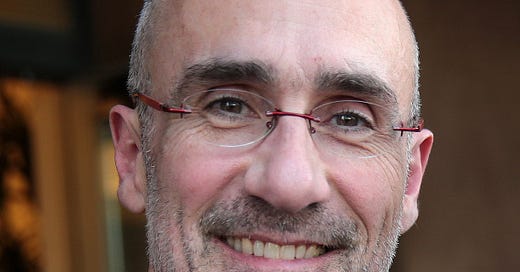It’s called Build the Life You Want by Arthur Brooks. Arthur teaches at the Harvard Business school and has had a regular column in The Atlantic for a number of years where he’s written extensively on the science of human happiness—i.e., what makes for a sense of wellbeing in a person’s life?
I honestly have no idea how the book wound up on my desk. But I’m sure glad it did. I found a ton in it that was super helpful.
And here’s why:
I am obsessed with the question of being human. What does it mean to live in these bodies, these minds? How are designed to function? What makes for our wellbeing and woe?
I pray constantly with the Psalmist, “Show me your paths; teach me your ways.” I want to know how this whole thing works, and I’m always eager to learn.
So here’s the foundational idea from Arthur’s work—and we’ll build on this in subsequent posts. There are three “macronutrients” for human happiness:
Enjoyment
Satisfaction
Purpose
Quick definitions:
“Enjoyment” is not just pleasure but pleasure PLUS communion and consciousness. This is why the solitary glutton will never be as happy as the person who arranged a purposeful feast with friends.
“Satisfaction” is the feeling you get from attaining a goal through your own hard work. This is why the person who cheats on a test for an A will never be as happy as the person who came by it honestly.
“Purpose” is your sense of what life is all about and whether you are living congruently with it, whatever the obstacle. This is why the person who has lots of money but no sense of “why” will never be as happy as the poor man who knows what he is living for.
Now that is enough to ponder for a long while. And if you do, one of the things that you’ll notice is that each of these key ingredients for happiness includes some very unpleasant—we might say “unhappy”—elements. The feast will take some effort to put on, and a bit delayed gratification. The grade will take the sacrifice of
hard work. A sense of purpose will often require that we say no to lesser “whys” in the service of our greater “Why.”
Brooks writes:
Getting happier, in other words, requires that we accept unhappiness in our lives as well, and understanding it isn’t an obstacle to our happiness (p. 12).
And that is a very significant takeaway. The life we are born into is a life filled with pain and discomfort. The question is not whether we can eradicate it—no one can. The question is what we will do with it. Will we engage with it in productive and creative ways? Or, to speak Christianly: will we let the Spirit use pain to shape us?
Curious what you think.




I struggle with satisfaction in my job and I do believe it is because I tend to rush and cut corners instead of putting in the hard work and being thorough. I can see where I would find more satisfaction or fulfillment in my job if I would put in more effort, I would have better results. I really want to read this book!
I’ve followed Arthur C Brooks since hearing him a couple of times on a favorite podcast that I subscribe to. This book, with Oprah adding an extra measure of support, is certain to be well read. And if only a fraction of the folks that read it take the lessons to heart, we might actually witness an evolution of consciousness.